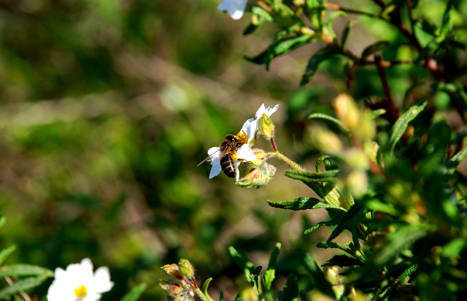
© Anne-Lise Hering, 2011
Green Economy: does it include you?
There is a clear link between poverty eradication, sustainable development, and better protection and restoration of the environment. Healthy ecosystems generate social, economic and environmental benefits; they are also an essential part of mitigating risks from natural disasters and global change.
Green economies are an important means to achieve what sustainable development ultimately aims at: the wellbeing of people while respecting the environment. Green economies alone are not enough. The complex, multifaceted challenges and risks
![]() We want a future where we can live in a healthy setting, with strong bonds to nature and a rich diversity of social relations. For this, we need a flourishing environment. We need to create green economies.
We want a future where we can live in a healthy setting, with strong bonds to nature and a rich diversity of social relations. For this, we need a flourishing environment. We need to create green economies. ![]()
Irina Bokova,
UNESCO Director-General, in her message on the occasion of World Environment Day 2012
ahead call for a response which addresses the social, economic and environmental issues facing the world today in an integrated and comprehensive manner.
It calls for building green societies: fair, equitable and inclusive societies that foster innovative and creative solutions to today’s global challenges. This is UNESCO’s roadmap towards a sustainable world, as the international community prepares for a unique chance to advance the sustainable development agenda during the United Nations Conference on Sustainable Development (Rio+20).
Building green societies
In order to identify emerging and fast-evolving environmental challenges, green societies need to have the capacity to imagine innovative solutions; the full potential of science needs to be harnessed through the natural and social sciences, technology and innovation capacity development, including at universities and research centres. Scientific evidence and ethical principles should inform behaviours, policy action and governance decisions to strengthen sustainable development agendas.
In science, technology, innovation and engineering, UNESCO is encouraging green solutions to the challenges of today and tomorrow. The Organization is leading the United Nations Decade of Education for Sustainable Development (2005-2014) to provide everyone with the tools and skills to make a difference. We are working to strengthen the interface between science and policy, and actively backing the recently established Intergovernmental Science-Policy Platform on Biodiversity and Ecosystems Services (IPBES).
UNESCO designated sites are ideal places for engaging in innovative approaches to conservation and sustainable development. Biosphere Reserves seek to reconcile conservation of biological and cultural diversity, and economic and social development, through partnerships between people and nature. They contribute to the transition to green societies by experimenting with green development options, such as sustainable tourism and training for eco-jobs.
UNESCO actions
-
Key document
-
Building equitable, inclusive, green societies
Join the celebration
-
Reduce your carbon footprint and save energy! Turn off the lights when leaving an empty room, use energy efficient light bulbs and appliances.
-
Encourage your friends to adopt and plant a tree, or organize a community garden.
-
Save water: turn off the tap when brushing your teeth or shaving, take short showers instead of baths, and check for wasteful leaks in your home.
-
Green your transportation: carpool, use public transportation or bike.
-
Refuse excess packaging, try to re-use and recycle as much as possible. Use cloth bags, reusable cups and silverware, non-plastic bottles...
-
Get involved in a neighborhood clean up, and bring your friends to help out too!
-
Participate in the Energy Globe Action Week and calculate how much energy you can save!
Source: UNESCO Multimedia Archives




